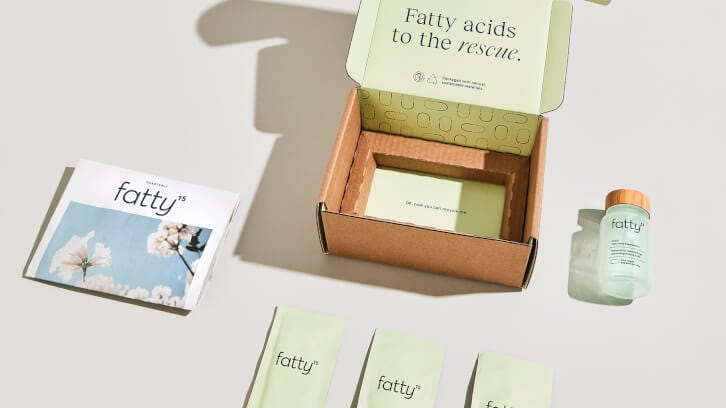Moreover, rapamycin is a rare compound discovered from bacteria growing on Easter Island whereas C15:0 is a common fatty acid naturally present in milk fat.
“Most surprisingly, our study showed that pure C15:0, a safe and essential fatty acid, had more cell repairing benefits than rapamycin, the leading longevity-enhancing drug candidate,” said Stephanie Venn-Watson, the study’s co-author. “Instead of having to go to Easter Island to discover rapamycin, our search for the holy grail of aging has landed much closer to home.”
In addition, the researchers found that C15:0 is consistent with metformin as a treatment for type 2 diabetes, improving glucose uptake by cells.
“We propose C15:0 as a natural, effective and safe odd-chain saturated fatty acid with strong evidence that this essential nutrient supports healthy aging and longevity in humans, with cell-based activities that are as good as, or better than, leading longevity-enhancing prescription therapeutics,” the scientists wrote.
They noted that C15:0 has the added benefit over rapamycin and metformin because it has been studied in global meta-analyses of large prospective cohort studies that have taken place over decades, most of which included healthy individuals.
The researchers wrote: “These studies consistently show that people with higher circulating C15:0 concentrations have a lower risk of aging-associated conditions.”
‘Zombie’ cells
To determine the potential for C15:0 to enhance processes attributed to longevity and healthspan, the researchers used human cell-based molecular phenotyping assays to compare C15:0 with acarbose, metformin and rapamycin. These three longevity-enhancing candidates were tested using the BioMAP Diversity PLUS system, which provides human disease models that span a broad scope of tissue and disease biology.
BioMAP tests molecules across 12 primary human cell-based systems mimicking various disease states and measures the molecule’s effects across 148 clinically relevant biomarkers at four doses.
The optimal concentrations for each of the evaluated compounds meant determining which of the four tested concentrations had the highest number of clinically relevant biomarker hits. Biomarkers in treated systems were considered “hits” if a biomarker readout was outside the significance envelope. In these systems, a significance envelope is a change in a biomarker caused by a given treatment.
The researchers found C15:0 and rapamycin have the most dose-dependent and clinically relevant activities.
“These common activities between C15:0 and rapamycin, which are reasonably expected to enhance healthspan, may be due in part to a shared mTOR-inhibiting mechanism that is a key target for enhancing longevity,” the researchers wrote.
When overactivated, mTOR (which stands for the mechanistic target of rapamycin) inappropriately revs up malfunctioning cells, which causes damage to tissues. These malfunctioning cells are often referred to as “zombie cells”.
“These zombie cells wreak havoc on our tissues, especially as we get older,” Venn-Watson said. “By naturally inhibiting mTOR, C15:0 helps to clear our bodies of senescent zombie cells to protect our long-term health, especially as we age.”
In addition to rapamycin, the current study identified clinically relevant and cell-based activities shared between C15:0 and metformin. These common activities may be due to their shared roles as AMPK activators.
AMPK, or AMP-activated protein kinase, keeps energy balanced at the cellular level. Another term for this whole-body balance is “homeostasis”.
“As we get older, AMPK is under activated, resulting in imbalanced metabolism and chronic inflammation, which contributes to age-related breakdown,” Venn-Watson added. “AMPK is so important to our long-term health, that it is considered core to determining our longevity.”
By activating AMPK, C15:0 plays an essential role in maintaining whole-body homeostasis that otherwise breaks down with age.
Next steps
The study’s researchers say they want to explore the effect C15:0 has on preventing, managing and treating chronic diseases, and specifically nonalcoholic fatty liver disease. One in three people suffer from NAFLD, according to Venn-Watson, who is pursuing the hypothesis that nutritional C15:0 deficiencies are causing a spike in NAFLD and nonalcoholic steatohepatitis (NASH).
“Most urgently, given C15:0’s emerging role in supporting long-term health, our study begs the question: Are nutritional C15:0 deficiencies, caused by lowered dietary C15:0 over the past 40 years, driving not only the increase in chronic diseases, but the observed shortening of our longevity, as well?” Venn-Watson said. “Our latest study provides a new hope that restoring C15:0 levels may be an easy and tangible way to meaningfully improve global health. That hope keeps us up and working every day.”
Source: Nutrients
doi: doi.org/10.3390/nu15214607
“Pentadecanoic Acid (C15:0), an Essential Fatty Acid, Shares Clinically Relevant Cell-Based Activities with Leading Longevity-Enhancing Compounds”
Authors: Stephanie Venn-Watson and Nicholas J. Schork



